Saiful Islam, 53, is professor of materials chemistry at the University of Bath. Later this month he is giving the 80th Christmas Lectures at the Royal Institution, entitled Supercharged: Fuelling the Future.
Your Christmas Lectures at the Royal Institution are going to be all about energy. What’s the next energy revolution going to look like?
Hopefully it is going to be a lot cleaner than it is now. We could have a greater degree of solar power, hopefully a greater deal of electrification of transport – with the renewables we are going to need energy storage. I think that wind will play a part. I think fossil fuels will still be around because they are very energy dense, they are still being dug up and, as we know in China, lots of coal power stations are being built. But if we want to have a really cleaner, more sustainable future, we do need to move over to greener energy technologies.
Is it harder to change human behaviour than our energy sources?
I am naturally an optimist. People are already driving more electric and hybrid vehicles, so even though they are more costly, people have changed their behaviour there – so there are always signs of optimism. Electric cars have come a long way and if you want really good performance, electric cars have some advantages in terms of torque and acceleration.
I hear you’ve just had a camera removed from your innards - what’s that all about?
Part of lecture two is energy and food. Obviously food is the main energy source for our human machine, so one thing we are doing is monitoring how much food I eat in the week, and then how much waste I produced at the other end. But we also wanted to track what happens inside the body, so I had to take in a capsule endoscope at St Thomas’ hospital yesterday morning. I had to starve myself – I just had water for a day and a half and some miso soup. The capsule endoscope filmed from 9am in the morning to about 5pm in the evening. The footage will be revealed in the lecture.
Michael Faraday, founder of the Christmas Lectures, was also keen on energy. How do you think you’ll measure up to his attempts at wooing the public?
He is one of my scientific heroes, partly because he was a fantastic scientist, but also largely because he came from very humble beginnings. He didn’t come from the elite as many scientists do, and in fact he started just as a lab assistant at the Royal Institution. I can definitely say I won’t be as great a scientist as Faraday, but I hope I live up to the Royal Institution’s expectations of a Christmas lecturer.
Another great energy pioneer, Nikola Tesla, pulled off some pretty good stunts when he demonstrated his ideas to the public, brandishing glowing tubes powered by a Tesla coil that sent electricity through his body. Will you be doing the same?
We’ve got different examples of energy in terms of potential, kinetic [and so on], but we want to show electricity in the raw. We have got some musical Tesla coils, so hopefully Tesla will approve. Unfortunately, because of licence issues I wasn’t allowed to add certain bits of music: I wanted to have Are Friends Electric? , by Gary Numan.
I heard you are also going to show people how to use an electric eel to light up the Christmas tree lights. Will that be your preferred energy source for the decorations this year?
In the end there was an issue over that. We did think about having the electric eel, but we found out that the ones on YouTube could have been partly faked, ie, it didn’t light up the Christmas tree. In the end, we discovered that it probably just turned on a switch. We did the calculations – you’d need a lot more electric eels.
What’s your favourite home experiment around energy?
One that we are going to try and show and hopefully which might lead to a Guinness World Record is the lemon battery. You can do that with a zinc nail and a copper strip and connect the wires and you can get some electric current from a lemon – the lemon juice is acting as the electrolyte in a normal battery. But since this is the Royal Institution, we’re going large – very large. We haven’t tested it, but we have done the maths, we’ve done the calculations, and if all goes well, we will have a world record for the most powerful lemon battery.
How many lemons will that take?
It could be at least 1,000. At the very least, if we don’t break the world record, it will be nice and fragrant within the Royal Institution lecture theatre.
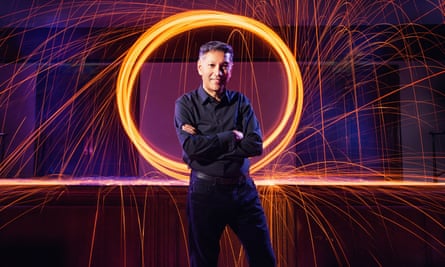
You’ve talked before about being an atheist. Is religious belief incompatible with science?
I can only speak for myself, and I think science is beautiful and you can actually find out more about the mysteries of the world through rational investigation and through reasoned thought and observation. It is ironic – my name obviously comes from my parents and that illustrates where a lot of religion comes from. Most people are the religion of their parents, and they are the religion of their grandparents, and it goes on from the grandparents. So it is passed down by authority and parents. You would never say that you were a Conservative child or a Labour child, but people do talk about Muslim children, Christian children and Hindu children. In print, it is always difficult to comment on religion – so I can only say what my philosophy is and whether it is compatible maybe from what I have just described, I think people can draw their own conclusions.
You’ve talked about suffering overt racism and being attacked as a teenager. Does prejudice exist within the academic world?
I have been very fortunate to have a successful career in academia. I have never felt any overt or covert prejudice or discrimination in academia. I am not saying it doesn’t exist – in society there are prejudices and there are, I suppose, unconscious biases and discrimination, but on a personal level I’ve never felt it in academia. Growing up in the 1970s, I was beaten up by National Front skinheads and there was “paki-bashing” going on and it wasn’t a nice time. My fear is that there is a rise in racism and intolerance around Europe and in the US, so there is that worry and it has to be challenged every time it rears its ugly head.
How do you feel about living in a post-truth society? Are you worried about the backlash against experts?
When during certain political campaigns experts are knocked, it is worrying. If you had a problem with your heart or some health issues you wouldn’t go and see an economist – you would go and see a health expert, and likewise in other areas you want to see experts in that particular field. It does concern me that if we are moving away from evidence-based policy and a rational analysis. Whether it is to do with science, whether it is to do with societal issues, then it should be a rational evidence-based approach. Always.
You grew up not far from Alexandra Palace, where the early Christmas Lectures were broadcast. How would a teenage Saiful have reacted if he was told he would give his own lectures one day?
I would be in disbelief. I would believe that person was on some sort of drug. I am very honoured and privileged – it has been a very surreal experience that I am the chosen Christmas lecturer for this year. So, yeah, I would be in shock and I think they’d be pulling my leg.
Professor Saiful Islam’s Royal Institution Christmas Lectures are broadcast on BBC Four on 26, 27 and 28 December at 8pm
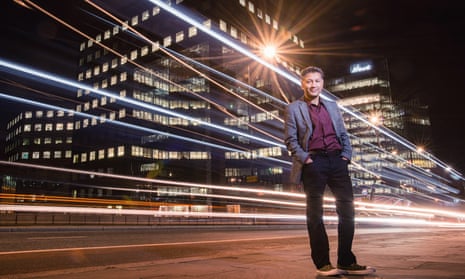

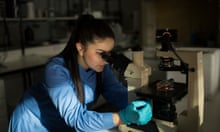
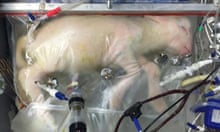

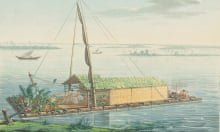
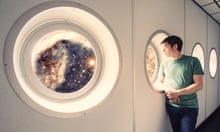
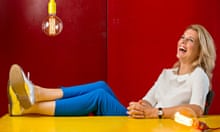
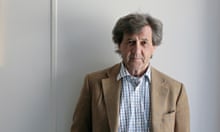
Comments (…)
Sign in or create your Guardian account to join the discussion